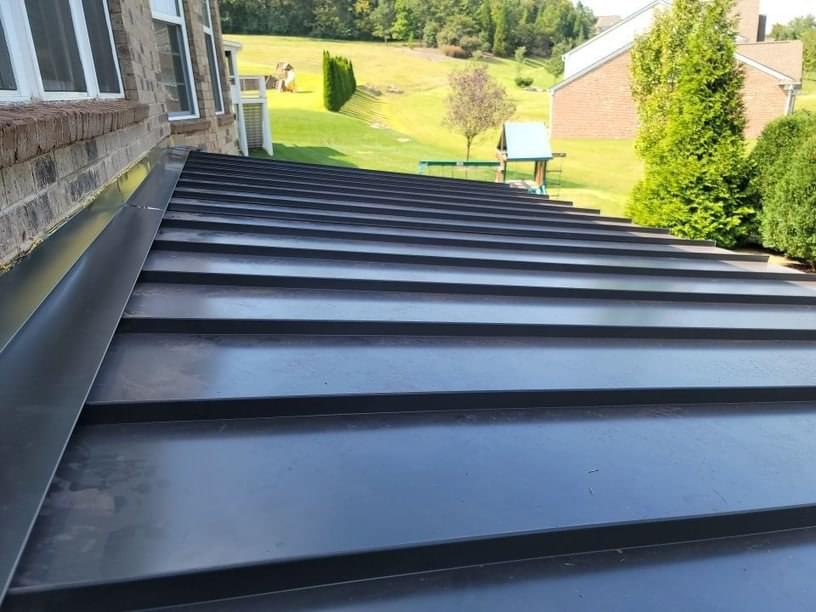Metal roofing has gained immense popularity in recent years due to its durability, energy efficiency, and aesthetic appeal. If you’re considering installing a metal roof on your home or building, one crucial aspect to consider is the gauge of the metal. The gauge of metal roofing plays a significant role in determining its performance, longevity, and cost-effectiveness. In this article, we will explore the importance of the gauge in metal roofing and help you understand which gauge is most suitable for your needs.

Understanding Metal Roofing Gauges
Before diving into the specifics of which gauge is most suitable for metal roofing, it’s essential to understand what a gauge is in this context. In the world of metal, the term “gauge” refers to the thickness of the metal sheet. Metal gauges are typically expressed in numbers, with lower numbers indicating thicker sheets. For example, a 24-gauge metal sheet is thinner than a 22-gauge sheet.
The Impact of Gauge on Metal Roofing
The gauge of your metal roofing has a significant impact on various aspects of its performance, including:
- Durability: Thicker gauges are more durable and can withstand harsh weather conditions, such as heavy rainfall, snow, and hail. They are also less prone to denting, which is essential for maintaining the roof’s appearance.
- Weight: Thicker gauges are heavier, which can be both an advantage and a disadvantage. While the added weight provides stability and resistance to wind uplift, it may require additional structural support.
- Cost: Thicker gauges of metal roofing typically cost more upfront. However, their durability can lead to long-term cost savings by reducing the need for repairs and replacements.
- Energy Efficiency: Thicker gauges often have better insulation properties, which can contribute to improved energy efficiency in your building. This can lead to lower heating and cooling costs over time.
Choosing the Right Gauge for Your Metal Roofing
The choice of the right gauge for your metal roofing depends on several factors, including your climate, budget, and aesthetic preferences. Here are some guidelines to help you make an informed decision:
- Climate: If you live in an area with extreme weather conditions, such as heavy snow or hail, it’s advisable to opt for a thicker gauge, typically between 22 and 26. Thicker gauges provide better protection against these elements.
- Budget: Thicker gauges are more expensive than thinner ones. Consider your budget carefully and balance it with your desired level of durability. Thinner gauges, such as 29 or 30, are more budget-friendly but may require more maintenance in the long run.
- Aesthetic Preferences: Thicker gauges can have a bolder, more substantial appearance, which may be preferred for certain architectural styles. Thinner gauges offer a sleeker, more contemporary look.
- Structural Considerations: Before choosing a gauge, consult with a structural engineer or roofing professional to ensure that your building’s structure can support the weight of the chosen metal roofing gauge.
Conclusion
In conclusion, the gauge of your metal roofing is a crucial factor that influences its durability, cost, energy efficiency, and overall performance. The choice of gauge should align with your specific needs and priorities, including your climate, budget, and aesthetic preferences. While thicker gauges offer superior durability and weather resistance, thinner gauges can be a cost-effective option for those on a tight budget. Remember to consult with roofing professionals to make an informed decision that ensures the longevity and functionality of your metal roofing system.
If you have any questions or need further assistance in choosing the right gauge for your metal roofing project, don’t hesitate to reach out to experienced roofing contractors. They can provide you with valuable insights and recommendations based on your unique requirements.



Leave a Reply